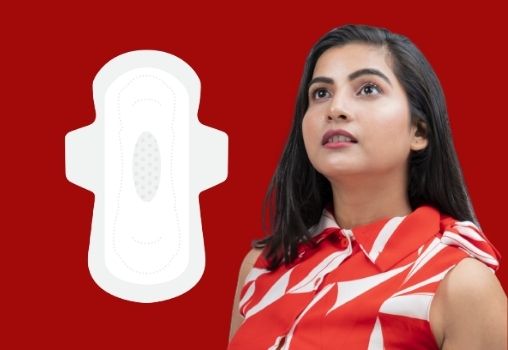Menstruation and menstrual practices are still characterised by many social, religious and cultural stigmas and restrictions that hinder appropriate menstrual and reproductive health.
Myths about menstruation are largely prevalent, forcing many girls to drop out of school early or be ostracised for the duration of their menstrual cycle every month.
Menstruators in India have significantly less knowledge or are ignorant or internet-educated (which is worse in terms of accuracy) regarding good hygiene practices during menstruation, directly impacting their personal hygiene during periods.
“Nearly 23 million girls drop out of school annually due to lack of proper menstrual hygiene management facilities, which include the availability of sanitary napkins and logical awareness of menstruation.” – DASRA, 2014.
A UNICEF report also suggests that girls could miss up to 4 consecutive days of school every month because of their periods, meaning that they missed 10–20% of school time, which seriously impacted their achievement.
Lack of awareness is the major hurdle in providing good menstrual health and hygiene to the Indian menstruator. Only providing sanitary napkins doesn’t guarantee health and hygiene; creating awareness and spreading proper knowledge is vital for the development of the community.
Various programs and projects have been upheld and executed to provide sanitary napkins to girls and women to ensure better management of periods.
The need of the hour is to educate them when in the nascency of menstruation regarding apt use of available resources, including tampons, reusable cloth pads, menstrual cups, etc.
Menstruators have to be given informed choices regarding using various available products to manage menstruation, e.g., tampons, menstrual cups, etc.
There is a substantial need to educate them about the means and methods of appropriate disposal of the products used.
Also, the menstruators should be educated about the environmental impact and health hazards associated with the disposal of single-use sanitary napkins.
Constructive projects and ideas for spreading community awareness regarding the implementation of modern methods for disposal of single-use sanitary napkins like incinerators in each community toilet/locality should be emphasised to reduce the burden of menstrual waste.
Appropriate and right knowledge promoting the use of reusable sanitary products such as cloth pads, bamboo-based sanitary pads, etc., should be provided to sensitise girls and women.
Spreading Awareness
Aligning with their prospects of sensitising the community and in the hope of bringing a paradigm shift in mindsets and “chain of commands related decisions” on menstruation, a Delhi Based NGO Sachhi Saheli has been celebrating “Menstrual Health Awareness Day” on 5 February since 2019.
“The Menstrual process inspires the day as the average period cycle is 28 days which simulates with the 28 days of February.
“Further, the average number of bleeding days during a menstrual cycle is five that is denoted by the date 5th, this similarity made this day interesting as well as logical,” states Shahnaz Bano of Sachhi Saheli.
She also says Menstrual Health and Awareness Day will also help centralise the efforts of various organisations to:
- Reduce silence and stigma around menstrual health and hygiene.
- Create sensitisation and knowledge on the process of menstruation.
- Create awareness about the normal, abnormal, and alarming aspects of menstrual health.
- Facilitate access to safe and hygienic menstrual management products.
Sachhi Saheli has already been effectively sensitising girls and women all across the country regarding menstrual health and hygiene. The 5-P Pouch (essential menstrual management kit) is a star amongst the government school girls in Delhi.
Some girls tell us tales of their making a DIY pouch for the kit and encouraging others to do the same in their respective activity/club periods.
Covid related restrictions haven’t hindered their morale and enthusiasm. The day will now be celebrated with the same zeal virtually with various informative programs in their basket.
They organise knowledgeable talk shows and panel discussions and generate mass awareness through #redspotcampaign and #abpatachalnedo campaigns. There are different zones for people with different knacks like the Pad zone, Fun zone, health zone, artist zone, etc.
Not just this, they also encourage celebrations of a #Happyperiodsday to break the taboos and the “dirty” term attached by celebrations and vigour in various schools, colleges and online campaigns.
Through the right knowledge and actions, the menstruators boost confidence whilst their menstrual health and hygiene.
Marking a day such as Menstrual Health and Awareness Day (MHAD) in India will contribute towards normalising conversations around menstruation. The success of the MHAD is an indication of a better tomorrow.
Have a Happy Period.
